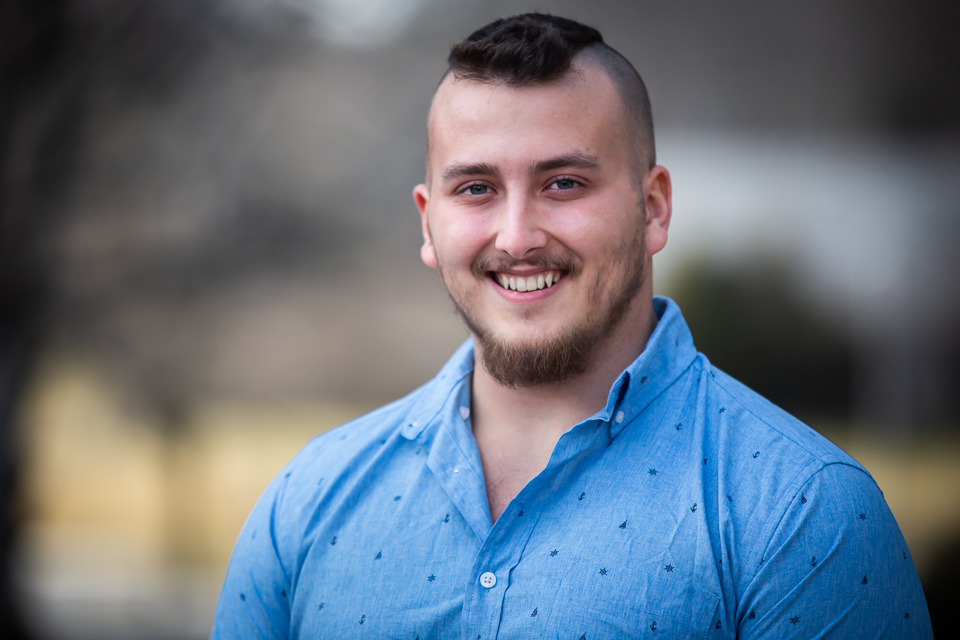Biotech Student Hopes to Contribute to the Treatment of Cancer After Losing a Relative to the Disease

Photo Credit: Simon Goodacre
December 7, 2020
Cynthia Kipkorir | Graduate School of Arts and Sciences
Graeme Lambert’s journey to biotechnology began after he interned at a cancer immunology lab during the summer between his junior and senior years of high school. After developing his knowledge in biochemistry and molecular biology program as an undergraduate at the University of New Hampshire, he decided to pursue a master’s in biotechnology because it “applies biology and biochemistry to a real-world purpose.”
Lambert chose the Brandeis program for a number of reasons, but the university’s proximity to the Greater Boston area and the offer of a DEIS Scholarship sealed the deal. “Brandeis is located extremely close to much of the Greater Boston Area’s biotechnology and pharmaceutical hub,” he says, “giving me a huge variety of opportunities for connections or jobs post-graduation.”
The program’s emphasis on professional experience interested Lambert. “I think in a lot of ways this gives us an edge compared to many master’s students,” he says. “The internships help us build connections and give us experience in a real company.” He was also attracted to the interdisciplinary nature of the program, which combines knowledge of current concepts in biology and business with training in professional skills and ethics. For instance, Lambert is currently taking a protein biochemistry lab and a management class that is “teaching us about finances and management—the business side of biotechnology.”
Lambert has found the student-faculty ratio enables his professors to provide one-on-one guidance, citing Neil Simister and Vincent Sutera as important mentors. “Neil has been fantastic leading this program and making sure we are enriched with the information and experience to lead us into the future of science while Vincent really pushed all of us to do our best work and think critically about our experiments and mistakes,” he says.
After losing his grandfather to stage IV melanoma, Lambert has been motivated to devote his career to studying various forms of cancer. After graduation, he hopes to join a company performing cancer research, particularly on p53-MDM2 related pathways. Eventually, he would like to own his own lab, design his own experiments, and lead a team that conducts “good clean science.” He hopes that his research will contribute to better treatment of a disease that touches so many people's lives.






